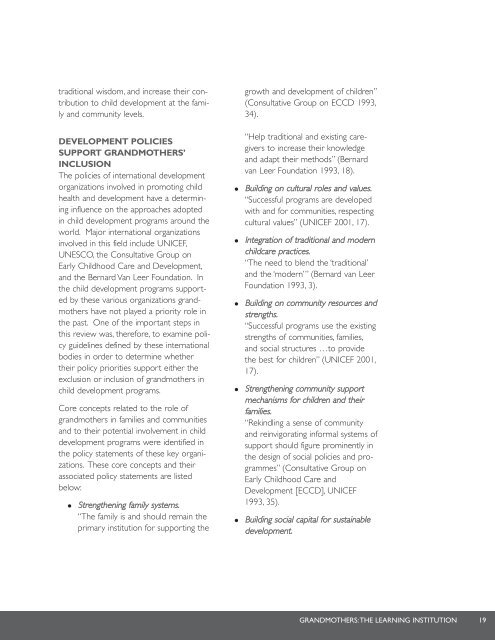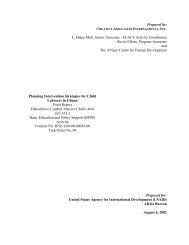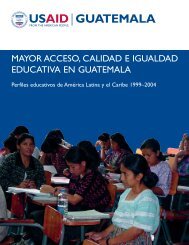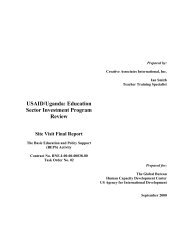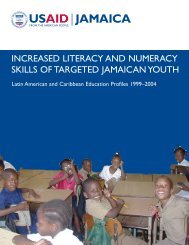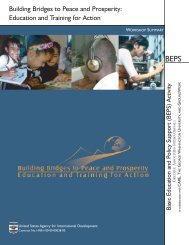Grandmothers: A Learning Institution - Basic Education and Policy ...
Grandmothers: A Learning Institution - Basic Education and Policy ...
Grandmothers: A Learning Institution - Basic Education and Policy ...
- No tags were found...
You also want an ePaper? Increase the reach of your titles
YUMPU automatically turns print PDFs into web optimized ePapers that Google loves.
traditional wisdom, <strong>and</strong> increase their contributionto child development at the family<strong>and</strong> community levels.DEVELOPMENT POLICIESSUPPORT GRANDMOTHERS’INCLUSIONThe policies of international developmentorganizations involved in promoting childhealth <strong>and</strong> development have a determininginfluence on the approaches adoptedin child development programs around theworld. Major international organizationsinvolved in this field include UNICEF,UNESCO, the Consultative Group onEarly Childhood Care <strong>and</strong> Development,<strong>and</strong> the Bernard Van Leer Foundation. Inthe child development programs supportedby these various organizations gr<strong>and</strong>mothershave not played a priority role inthe past. One of the important steps inthis review was, therefore, to examine policyguidelines defined by these internationalbodies in order to determine whethertheir policy priorities support either theexclusion or inclusion of gr<strong>and</strong>mothers inchild development programs.Core concepts related to the role ofgr<strong>and</strong>mothers in families <strong>and</strong> communities<strong>and</strong> to their potential involvement in childdevelopment programs were identified inthe policy statements of these key organizations.These core concepts <strong>and</strong> theirassociated policy statements are listedbelow:• Strengthening family systems.“The family is <strong>and</strong> should remain theprimary institution for supporting thegrowth <strong>and</strong> development of children”(Consultative Group on ECCD 1993,34).“Help traditional <strong>and</strong> existing caregiversto increase their knowledge<strong>and</strong> adapt their methods” (Bernardvan Leer Foundation 1993, 18).• Building on cultural roles <strong>and</strong> values.“Successful programs are developedwith <strong>and</strong> for communities, respectingcultural values” (UNICEF 2001, 17).• Integration of traditional <strong>and</strong> modernchildcare practices.“The need to blend the ‘traditional’<strong>and</strong> the ‘modern’” (Bernard van LeerFoundation 1993, 3).• Building on community resources <strong>and</strong>strengths.“Successful programs use the existingstrengths of communities, families,<strong>and</strong> social structures …to providethe best for children” (UNICEF 2001,17).• Strengthening community supportmechanisms for children <strong>and</strong> theirfamilies.“Rekindling a sense of community<strong>and</strong> reinvigorating informal systems ofsupport should figure prominently inthe design of social policies <strong>and</strong> programmes”(Consultative Group onEarly Childhood Care <strong>and</strong>Development [ECCD], UNICEF1993, 35).• Building social capital for sustainabledevelopment.GRANDMOTHERS:THE LEARNING INSTITUTION19


